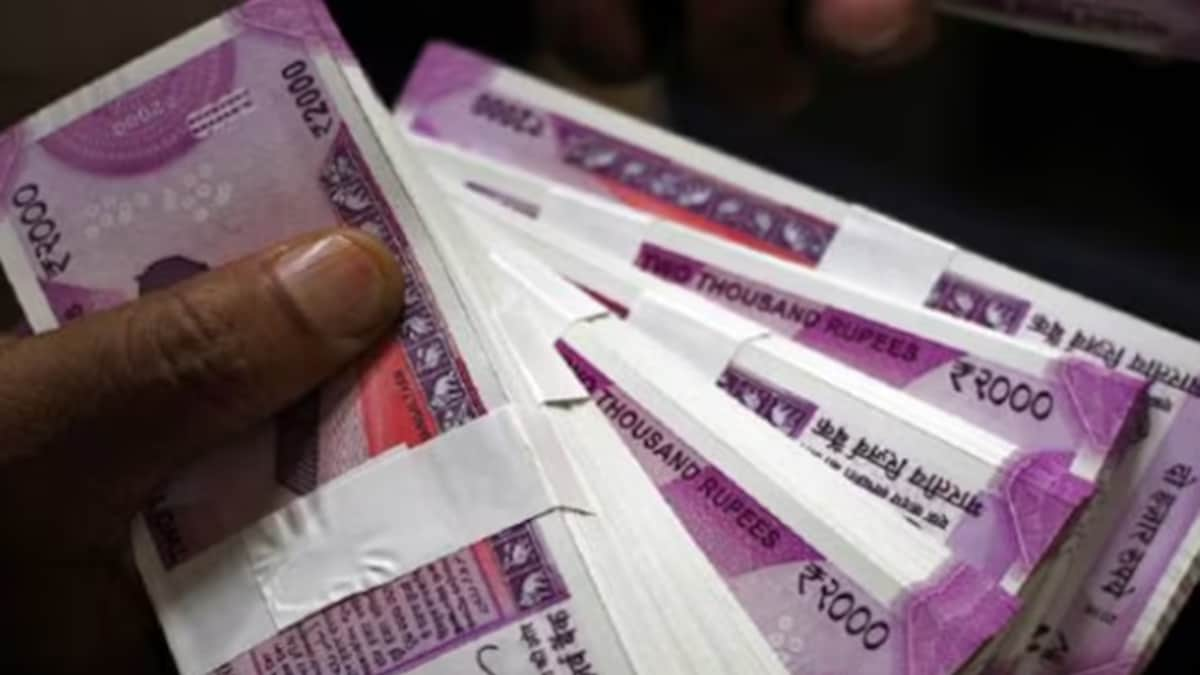Rs 2000 Note Exchange In SBI: No Form Or ID Required; Check Latest Update Here

As per the RBI, about 89 per cent of the Rs 2,000 denomination banknotes were issued prior to March 2017 and are at the end of their estimated life span of 4-5 years.
SBI said that no identity proof is required to be submitted by the tenderer at the time of exchange.
State Bank of India (SBI) has clarified that the facility of exchange of Rs 2,000 denomination bank notes upto a limit of Rs 20,000 at a time will be allowed without obtaining any requisition slip.
The Reserve Bank on Friday announced withdrawal of Rs 2,000 currency notes from circulation but gave public time till September 30 to either deposit such notes in accounts or exchange them at banks.
Further, SBI said that no identity proof is required to be submitted by the tenderer at the time of exchange.
Unlike the November 2016 shock demonetisation when old Rs 500 and Rs 1,000 notes were invalidated overnight, the Rs 2,000 notes will continue to be a legal tender till September 30.
Also Read: Fake Rs 2000 Note Check: Before Depositing In Bank, Identify With These Steps
In a statement, the Reserve Bank of India (RBI) said it has asked banks to stop issuing Rs 2,000 notes with immediate effect.
While the RBI did not specify a limit for depositing the Rs 2,000 currency notes in bank accounts, exchange of a maximum of Rs 20,000 (10 notes of Rs 2,000) for other currency notes will be allowed at a time.
The move comes amid concerns of the highest denomination notes being used to hoard black money. The RBI had stopped printing Rs 2,000 notes in 2018-19 and the notes were rarely in circulation.
The Rs 2,000 denomination bank note was introduced in November 2016, primarily to meet the currency requirement of the economy in an expeditious manner after the withdrawal of legal tender status of all Rs 500 and Rs 1,000 bank notes in circulation at that time.
The RBI said it has also been observed that Rs 2,000 denomination note is not commonly used for transactions. Further, the stock of bank notes in other denominations continues to be adequate to meet the currency requirement of the public, it added.
Deposit into bank accounts can be made in the usual manner, that is, without restrictions and subject to extant instructions and other applicable statutory provisions, it said.
As per the RBI, about 89 per cent of the Rs 2,000 denomination banknotes were issued prior to March 2017 and are at the end of their estimated life span of 4-5 years.
The total value of such banknotes in circulation has declined from Rs 6.73 lakh crore at its peak as on March 31, 2018 (37.3 per cent of notes in circulation) to Rs 3.62 lakh crore constituting only 10.8 per cent of notes in circulation as on March 31, 2023.
In January 2014, the RBI announced withdrawal from circulation all bank notes issued prior to 2005.
For all the latest business News Click Here


